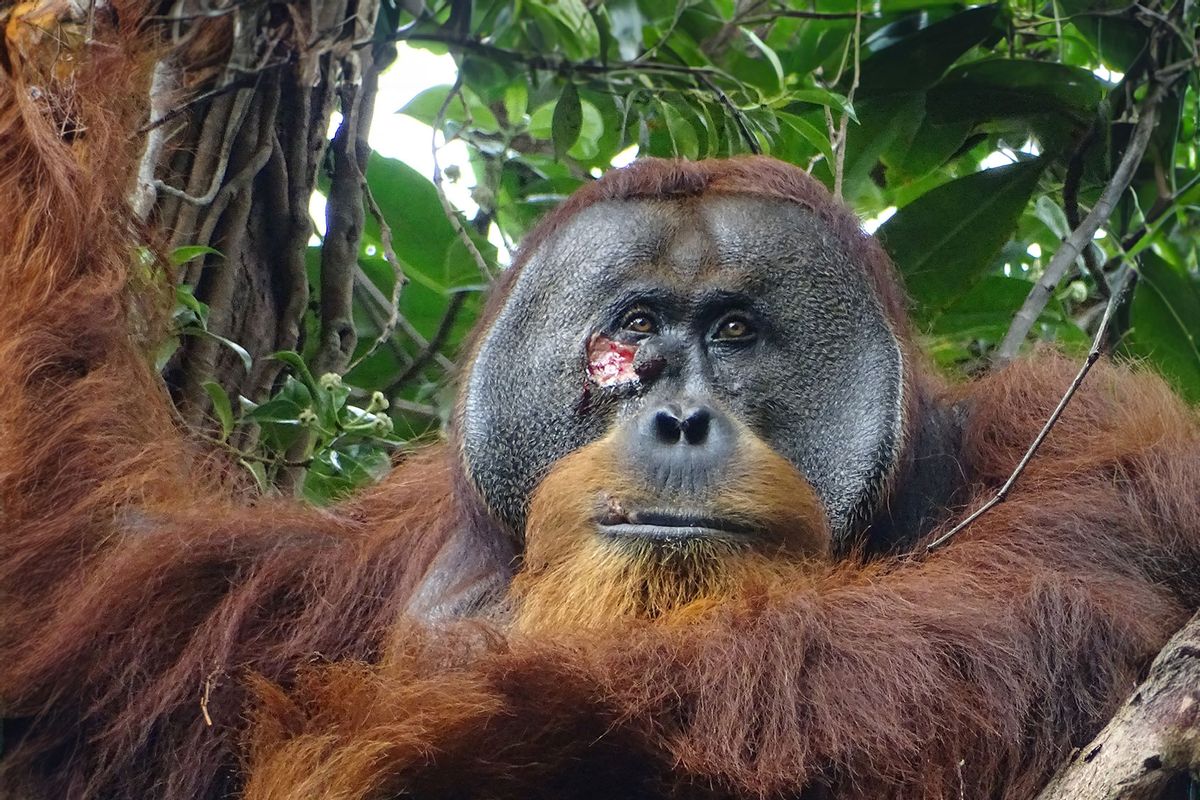The reddish orange orangutan rubs the mashed up plant on its face. One could mistake this for mindless monkey business, but it is quite the opposite: The wild Sumatran orangutan (Pongo abelii) previously chewed up the Akur tuning plant (Fibraurea tinctoria), extracted its juice and then applied the liquid to a facial wound.
In other words, the male orangutan spent more than 30 minutes engaged in a process to treat its injury, which ultimately closed in five days and fully healed within a month, according to scientists studying the incident for the journal Nature. Rakus even seemed to rest more than usual, further suggesting that the animal was intentionally undergoing a self-healing process.
Yet this was no ordinary medical treatment. The orangutan — dubbed "Rakus" by the scientists at Indonesia's Gunung Leuser National Park, where he was spotted — may now be the first documented case of a wild animal treating its own wound with medicine.
"This possibly innovative behavior presents the first systematically documented case of active wound treatment with a plant species know to contain biologically active substances by a wild animal and provides new insights into the origins of human wound care," the researchers write.
Orangutans are widely beloved as among the most intelligent and human-like wild primates. Their nickname is "gardeners of the forest" because they play a key role in maintaining the health of their native ecosystems. Because they eat leaves, fruits and insects, they help disperse seeds and regenerate forests. Yet orangutans are currently listed as Critically Endangered by the International Union for Conservation of Nature. They face extinction because of human activity like habitat destruction, climate change, poaching and the illegal pet trade.

Shares